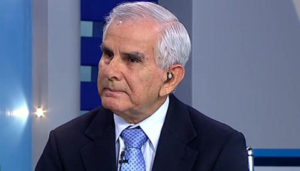The Costa Rican government announced the new regulations that will be mandatory for providing public transport service by bus, taxis, special services, as well as new deadlines to regularize royalty payments and other procedures for this sector to reactivate its operations.
“Public transport is a service that the State must guarantee to the population during the current emergency caused by COVID-19, that is why these special measures are being taken,” explained the Nation`s First Lady, who coordinates institutional efforts to ensure the continuity of this service to users during and after the emergency caused by COVID-19.
The measures have been taken by the Ministry of Public Works and Transport (MOPT), the Public Transport Council (CTP) of MOPT, the National Insurance Institute (INS) and the Regulatory Authority of Public Services (ARESEP).
Public transport by bus
Currently, the CTP allows adjustments to operating schemes (such as schedules and frequencies) due to the reduction in demand during the national emergency, also promoting commercial relations between bus operators and companies for the transfer of workers during the emergency period.
 “From the Vice Ministry of Transport and the CTP we strive to guarantee the continuity of bus services, coordinating between institutions and with the business sector. All these actions in order to mitigate the impacts of the national emergency we are experiencing,” said the Vice Minister of Transport, Eduardo Brenes.
“From the Vice Ministry of Transport and the CTP we strive to guarantee the continuity of bus services, coordinating between institutions and with the business sector. All these actions in order to mitigate the impacts of the national emergency we are experiencing,” said the Vice Minister of Transport, Eduardo Brenes.
In the case of ARESEP, the Authority extended the deadlines for collecting fees for transportation services and also established means to generate payment arrangements. On the other hand, public hearings on rate adjustments were suspended by the sanitary order.
In those cases where an economic affectation by the crisis derived from COVID-19 is claimed, the INS will grant certain facilities to its clients who provide the service in public transport. For example, the grace period will be extended for up to 4 months and they will be recognized under the guidelines established by the Institution.
For bus units that are proven to be out of circulation and are guarded on premises, fire insurance is offered that has the necessary coverage for vehicles that are not exposed to traffic risks.
Regarding work risk insurance, companies may submit to the INS the projection of wages to be paid during the period of collection, in order to readjust the corresponding premium.
Taxi service

The actions carried out by the Public Transport Council during this COVID-19 emergency include the following measures for the taxi sector:
● Authorization for airport taxi drivers to perform services in other locations or through specific contracts with companies that require their services.
● The collection of the second tract of the canon is postponed to June 15, 2020, collection that was scheduled for the last day of April.
● Coordination with COSEVI so that RITEVE does not request proof of payment of the fee to carry out the technical vehicle review.
Special services modality
In conjunction with the Technical Secretary of the National Network for Child Care and Development and the National Directorate of Education and Nutrition Centers and Children’s Comprehensive Care Centers, due to the national emergency by COVID-19, the CTP authorized 1,300 licensees student transports to deliver food, and thus allow the continuity of their public transport service.
On the other hand, for all modalities, the MOPT issued the resolution to transfer the vehicle technical reviews from April to May. The CTP also makes joint efforts with financial entities and the Costa Rican Social Security Fund to facilitate economic measures to all workers of the transport sector, in order to mitigate the effects of the emergency.

